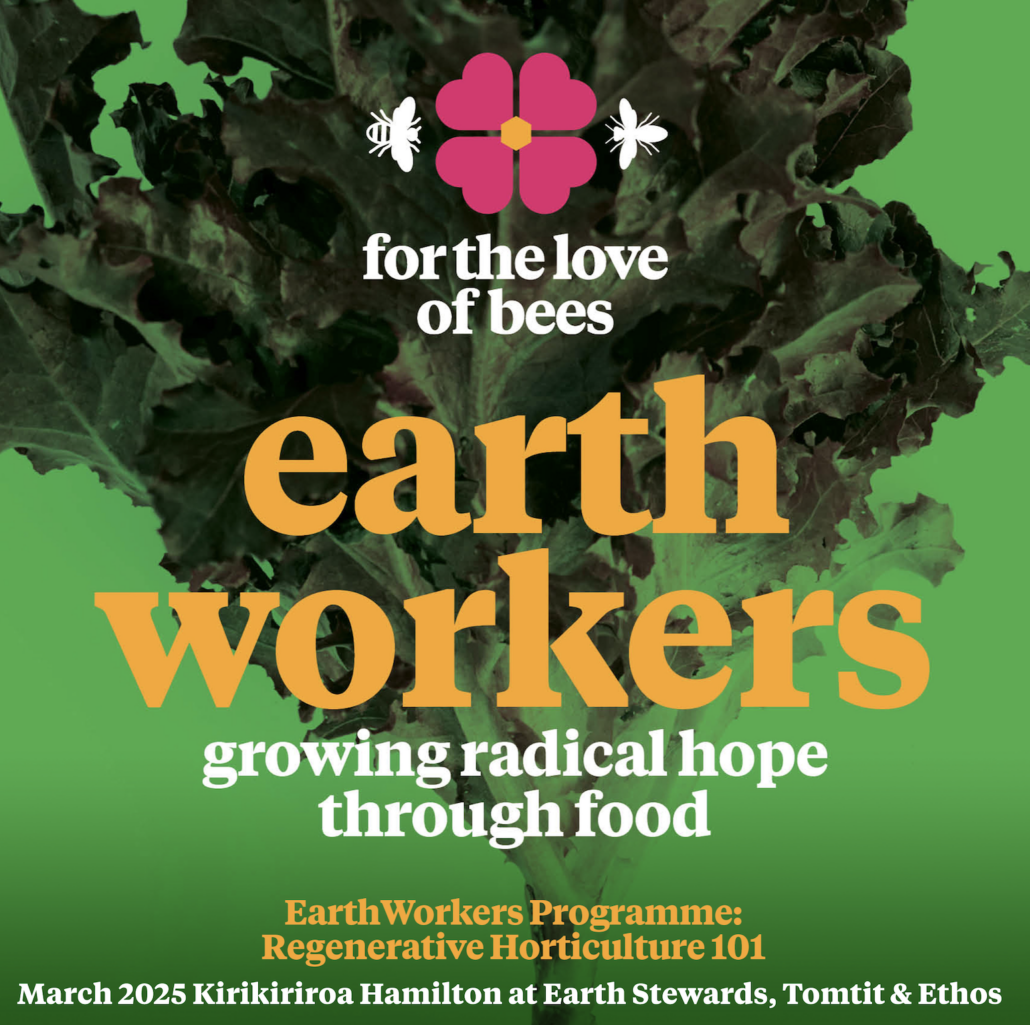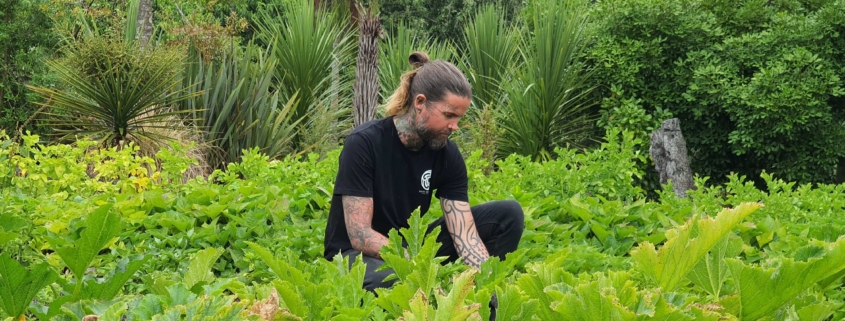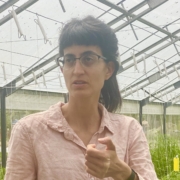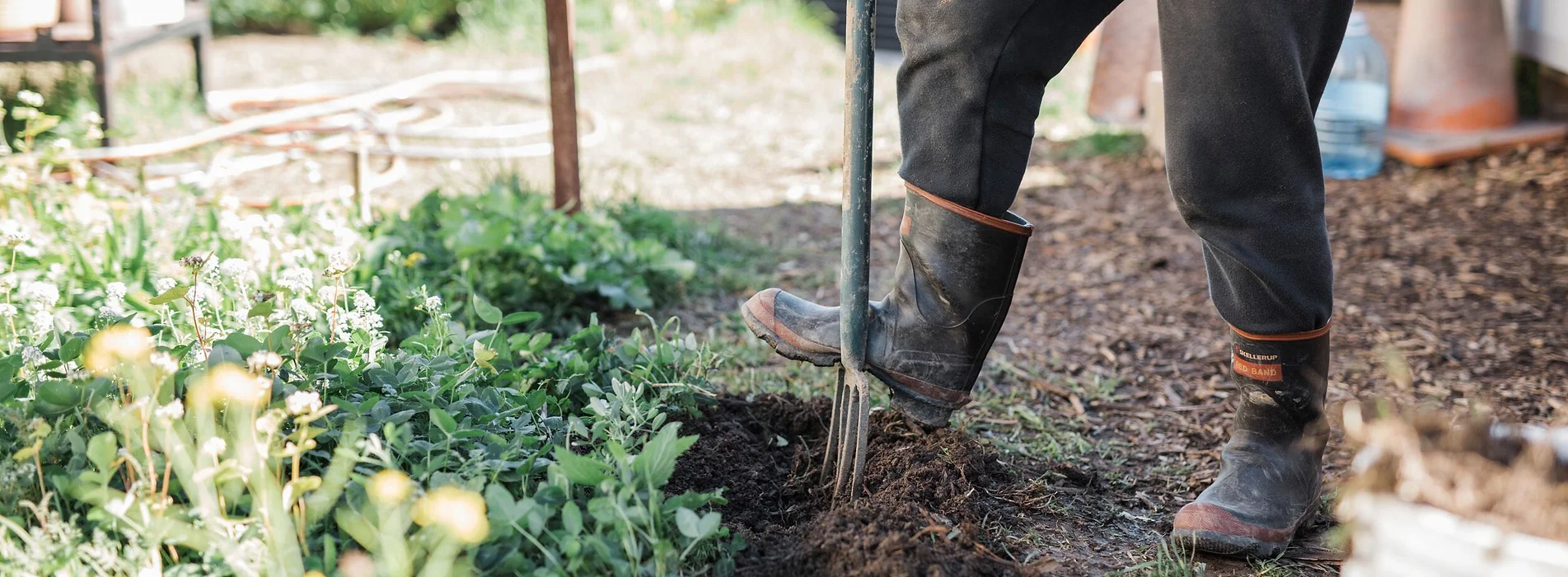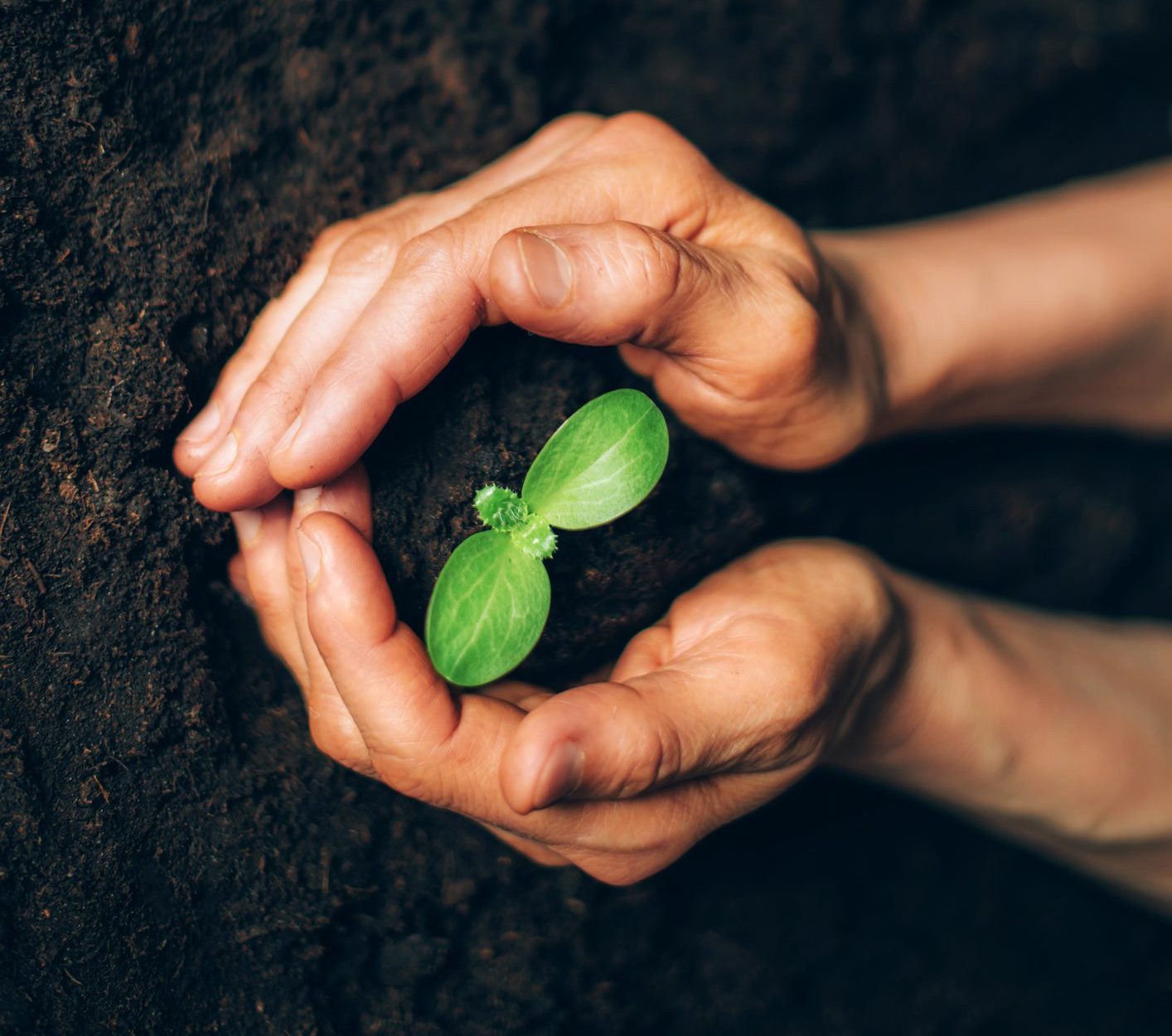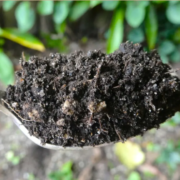From paddock to plate and back again
As he deepens his knowledge of organic and regenerative horticulture and the links with soil, food and health, Chris McIntosh has found his life journey coming full circle.
Sarah Smuts-Kennedy finds out more in this second article about participants and alumni of the Earthworker Regenerative Horticulture course.
We hope you enjoy this free article from OrganicNZ. Join us to access more, exclusive member-only content
Seeds planted in childhood
Raised on his grandparents’ farm, Chris McIntosh had a childhood steeped in traditional practices. “They cooked everything from scratch, preserved food, and had animals,” he recalls. His grandfather, a market gardener from Holland, unknowingly planted the seeds of horticulture in him. These experiences became his happiest childhood memories and set the foundation for his later passion for growing food.
As a chef, Chris’s approach to food was always health-driven. “Most chefs focus on flavor. My first question is, ‘Is this healthy?’”
Health challenges forced him to scrutinise ingredients and their sources. “When you start asking where food comes from, it becomes pretty scary.” This curiosity and necessity drove his journey into horticulture.
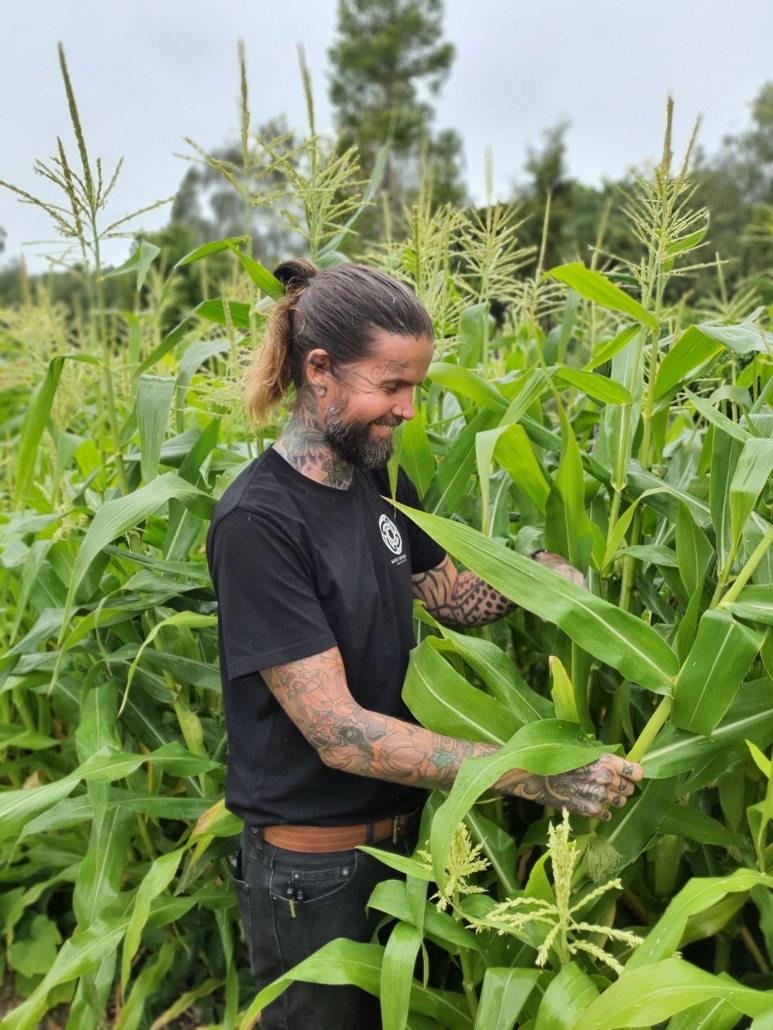
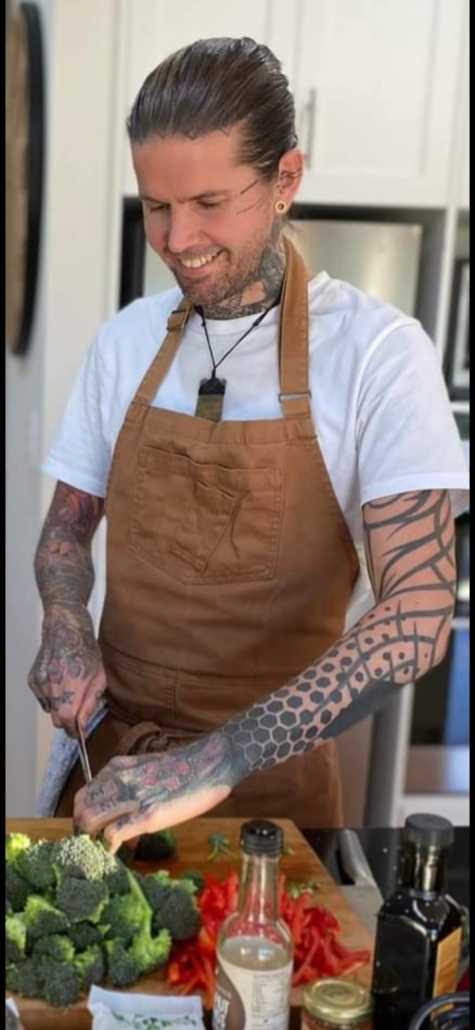
Right – Chris in the Ethos kitchen
Starting with Earth Stewards
Chris found the culinary industry to be a toxic environment, so he left, and took a leap of faith. He had no job but had always dreamed of starting a farm. A friend introduced him to Warwick Hutchinson, who offered him land to begin Earth Stewards, a certified organic urban farm project in Hamilton inspired by North American regenerative farming pioneers like Curtis Stone and Jean-Martin Fortier.
“I approached the farm with methods I learned online,” Chris explains. But the labour-intensive practices of broadforking and double digging weren’t sustainable. He pivoted to no-till horticulture, laying heavy compost directly on the soil, which worked well initially. Over the years of growing Chris has realised that one size does not fit all in horticultural practices.
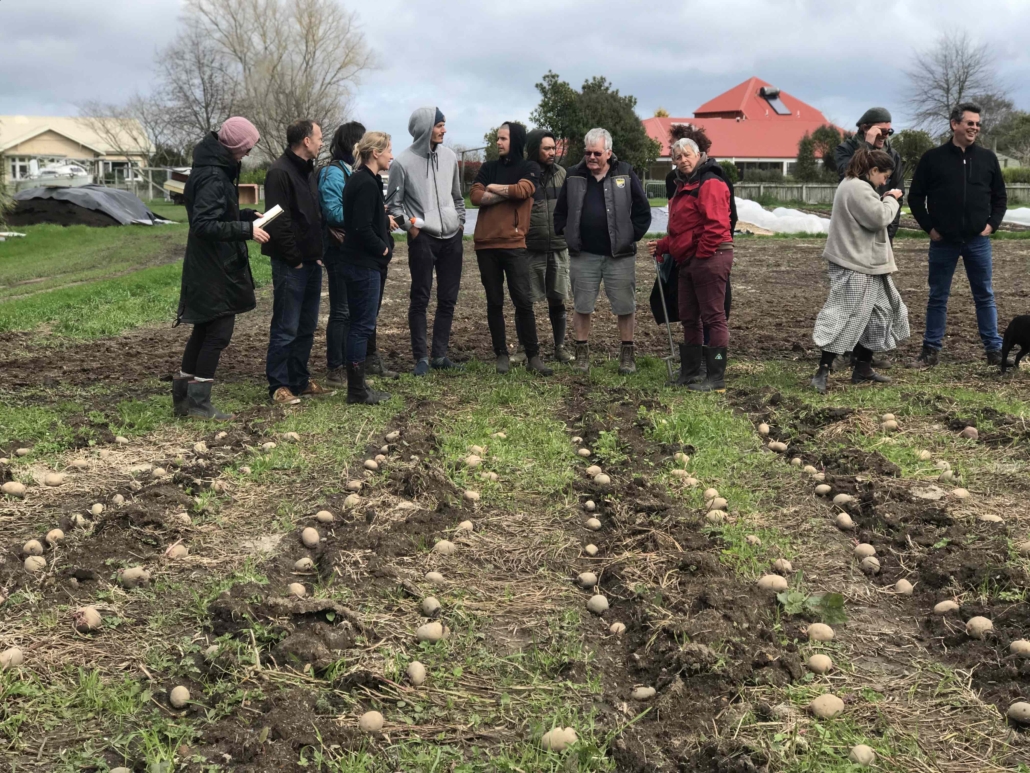
Ethos: A new chapter
Chris’s second urban farm project reflects his deeper understanding of horticulture. It’s a café called Ethos, located within the social enterprise of Mahi Mihinare – Anglican Action farm, also in Hamilton.
“Starting another growing project gives me a chance to apply everything I’ve already learned. But it also makes me realise there is so much more I want to know about regenerative horticulture.”
From creating his own potting mix to understanding soil chemistry, he emphasises the importance of getting it right from day one. “If you don’t get a good start, you don’t get a good outcome.”
Soil testing has become really essential, something he has learnt from the mistakes he has made which have taught him valuable lessons. “This season for example, one bad input material has affected all our growing beds, and I’ve had to spend months trying to recover from it.” This was bought-in compost that turned out to be very poor quality.
The Ethos project also gives Chris the freedom to explore the connection between food culture and horticulture. “Food culture is born around what we can grow in season locally, not what we can import. I’m trying to find my identity within the food industry and our culture.”
The integration of this new urban farm with the Ethos café means he is focused on using surplus produce to create preserves adding value to their produce. “This way, we make the most of what we grow, while educating customers on seasonal, local food.”
Lessons learned
Key takeaways from Chris’s journey include:
- Observation is a horticulturist’s greatest tool: “Nature is always speaking to us. Everything in nature is perfect. Why am I so arrogant to think I know better?”
- Holistic thinking: Health, soil, and community are interconnected. “You can’t just focus on one aspect and hope the rest falls into place.”
- Importance of systems: “As a chef, I’ve learned the value of good systems. Without them, nothing flows, whether in the kitchen or in the garden.”
Hosting the Earthworker Course
Chris is extending his learning, connection and growth not only by participating in the Earthworker Course, but at the same time by offering to host the course coming up in late March at the Mahi Mihinare conference facilities where Ethos is located.
“I want to be part of the biology-first regenerative horticulture movement and learn from others on this path. I already have a few years of urban farming under my belt, and I recently completed the Nutri Tech Solutions course in Australia with Graeme Sait, but I know Daniel [Schuurman] has more to teach me here on my own site, and I also sense being part of the Earthworker network will be invaluable for growing my confidence and ability as a horticulturist.”
He sees this as an opportunity to refine his skills and contribute to a broader community of regenerative growers. “I hope to support other projects and participate in further education opportunities to become an agronomist like Graeme Sait and Daniel.”
“I’ve spent years practicing, but now I want to understand how the system works beneath the soil. To become a good steward of it.” – Chris McIntosh

Mentorship: Daniel Schuurman’s support
A key figure in Chris’s journey has been Daniel Schuurman, the lead teacher and mentor for Earthworkers. Daniel has over 45 years of lived experience as a grower, giving him a long-range perspective as an agronomist and consultant. He began supporting Chris during his time at Earth Stewards and has continued to guide him through the challenges of his new project at Ethos.
“Daniel’s depth of knowledge and ability to connect science with lived experience have been invaluable,” Chris says. “His mentorship has helped me navigate complex challenges and saved my arse a few times. Slowly his support is helping me build necessary foundational knowledge. ”
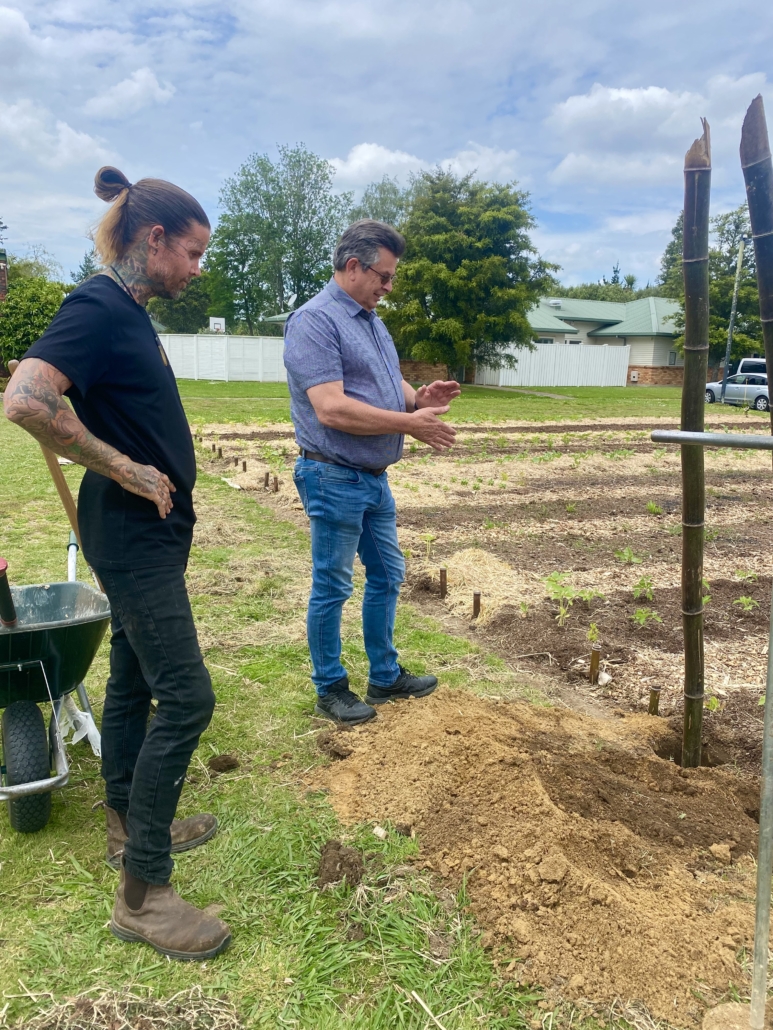
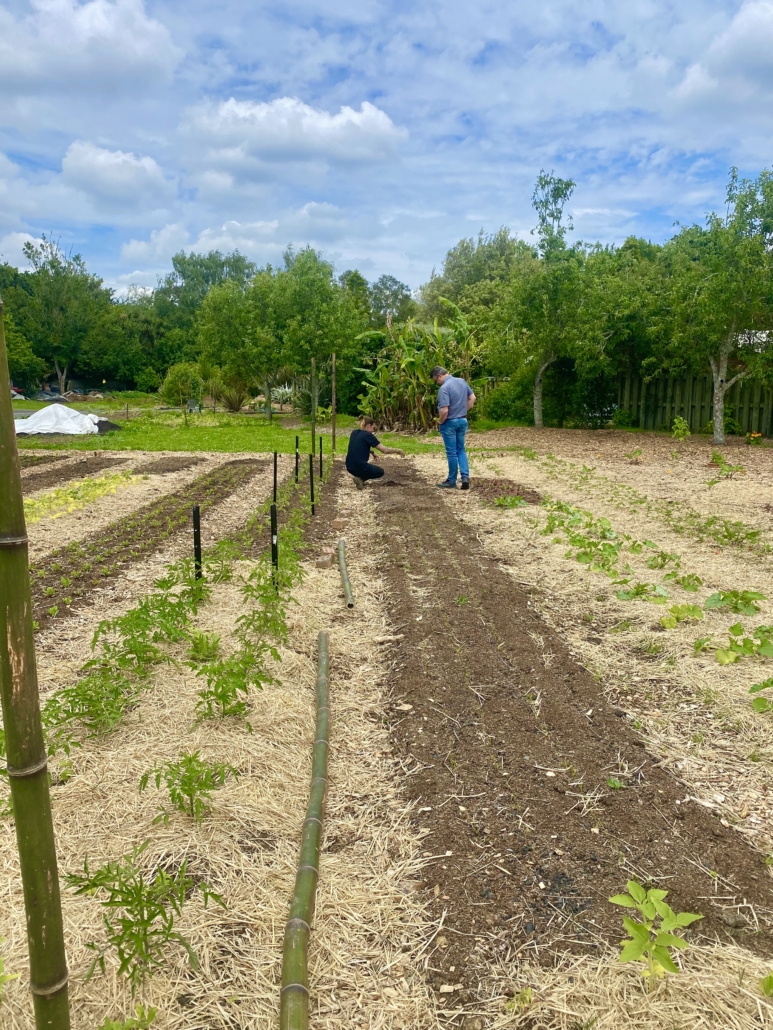
A transformative opportunity
The Earthworker course will be a transformative opportunity to deepen his understanding and connect him with like-minded growers. “I have a million questions a week, and being part of the Earthworker Alumni network will allow me to tap into a growing community of regenerative practitioners who prioritise ecosystem and community restoration.” For more information about the Earthworker Alumni network, see the first article in this series here.
Chris is excited to learn specific practical skills, including:
- Making his own biological inoculations for seeds and brewing applications for soil and foliar use.
- Understanding the nitrogen cycle and how minerals like phosphorus interact with fungi.
- Improving his composting techniques to prepare for creating his own seed-raising mix, inspired by Earth Stewards manager Coral Ramiro.
- Developing effective mulching strategies to improve soil health and water retention.
- How nutrition affects plant health, impacts on a plant’s ability to photosynthesise, be pollinated effectively, and encourage its relationship with soil microbes.
The five-day immersion into the chemistry and biology of thriving horticultural systems is particularly exciting for Chris. “I’ve spent years practicing, but now I want to understand how the system works beneath the soil. To become a good steward of it.”
Chris feels passionate about making biology-first regenerative horticulture his life’s work. He’s especially eager about the prospect of joining a small cohort of Earthworker Alumni in 2025, participating in a research group that will receive expert coaching to achieve a higher level of mastery. “This is an incredible opportunity to deepen my expertise and contribute to the future of regenerative horticulture.”
The bigger picture
Chris’s vision extends beyond his garden. He dreams of a world where people reconnect with the land and embrace community living. “Everyone has moved away from horticulture because of the materialistic dream of city life. We’ve lost our connection to the very thing that sustains us.”
By hosting the Earthworker course and sharing his journey, Chris hopes to inspire others to return to the land and take responsibility for their food and health. “If we work with nature instead of against it, we can create a sustainable future for ourselves and our communities.”
Sarah Smuts-Kennedy is the founder of For the Love of Bees and OMG (Organic Market Garden in central Auckland), and co-founder of the Earthworkers programme.
Earthworkers Hort 101
24–28 March 2025, Hamilton
Hosted by:
- Coral Ramiro and team at Earth Stewards
- Brit and James Stembridge of Tomtit Farm
- Chris McIntosh at Ethos Café’s new start-up farm
These three farms will showcase regenerative farming practices in action. Participants in the course will learn from these growers who have experience of managing farms and offer models of what’s possible using biology-first regenerative methods.
Find out more and ENROL HERE by 9 March 2025.
